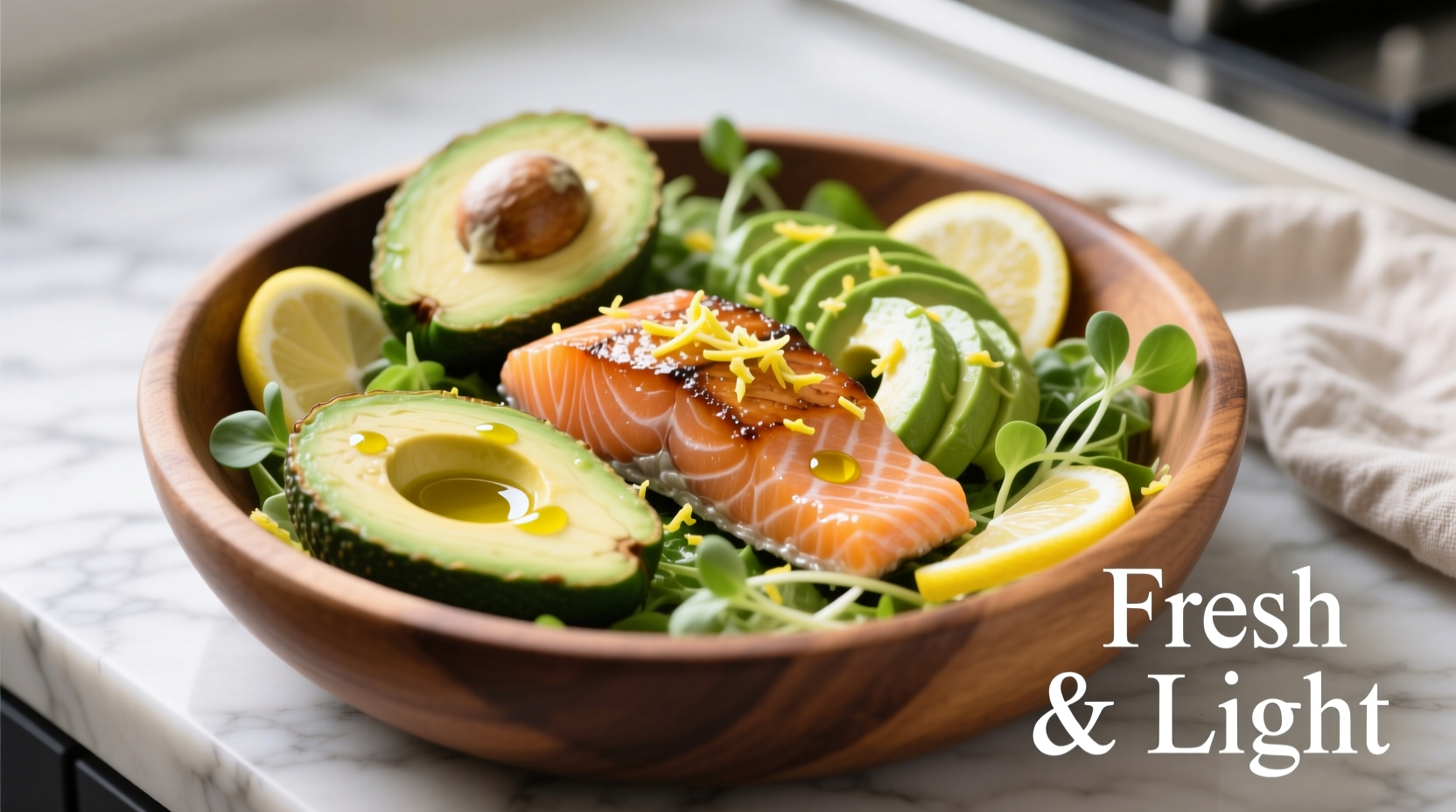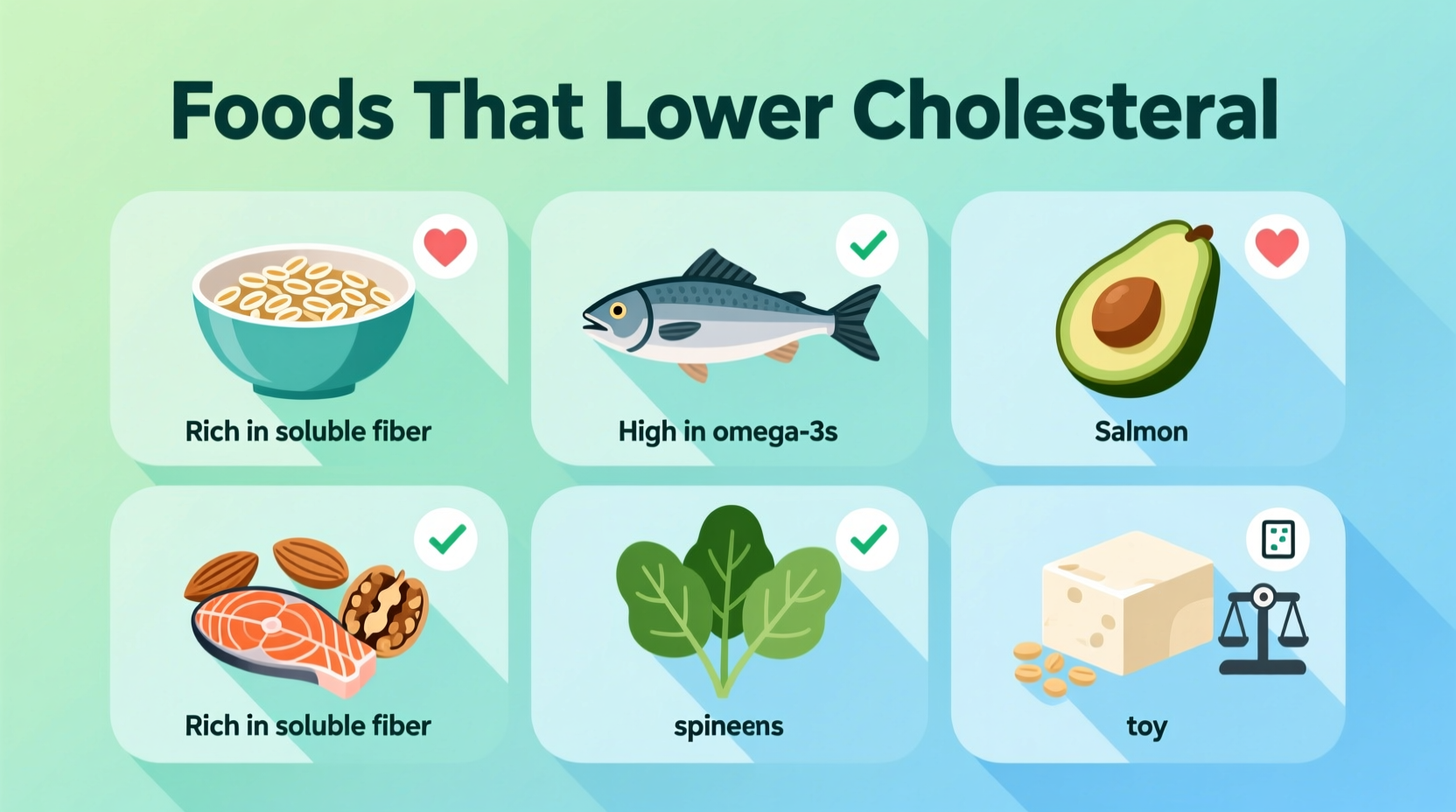Discover exactly how these foods work to improve your heart health and practical ways to incorporate them into your daily routine. This evidence-based guide explains the science behind cholesterol reduction through diet, backed by decades of nutritional research and clinical trials.
Understanding Cholesterol and Dietary Impact
Cholesterol management isn't just about avoiding certain foods—it's about strategically incorporating specific nutrient-rich options that actively improve your lipid profile. LDL cholesterol (the "bad" kind) contributes to plaque buildup in arteries, while HDL ("good" cholesterol) helps remove it. The right foods target multiple mechanisms:
- Soluble fiber binds to cholesterol in digestion
- Healthy fats replace artery-clogging saturated fats
- Plant compounds block cholesterol absorption
- Antioxidants reduce inflammation that damages blood vessels
According to the American Heart Association, dietary changes can lower LDL cholesterol by 5-15% within 4-12 weeks—comparable to some medication effects for mild cases.
The Science-Backed Cholesterol Fighters
Oats and Whole Grains: The Soluble Fiber Powerhouse
Oats contain beta-glucan, a type of soluble fiber proven to reduce LDL cholesterol by 5-7% when consuming just 3 grams daily. This is equivalent to about 1.5 cups of cooked oatmeal.
| Fiber-Rich Food | Beta-Glucan per Serving | LDL Reduction Potential |
|---|---|---|
| Old-fashioned oats (¾ cup dry) | 1.5-2g | 3-5% with regular consumption |
| Barley (⅔ cup cooked) | 1g | 4-5% in clinical trials |
| Psyllium husk supplement (1 tbsp) | 3g | 5-7% in multiple studies |
For maximum benefit, choose steel-cut or old-fashioned oats over instant varieties, which often contain added sugars. The National Institutes of Health confirms that consistent consumption of whole grains significantly improves lipid profiles over time.
Fatty Fish: Omega-3 Power for Heart Health

Fatty fish like salmon, mackerel, and sardines contain omega-3 fatty acids (EPA and DHA) that reduce triglycerides by 15-30% and modestly improve HDL cholesterol. The American Heart Association recommends two 3.5-ounce servings weekly.
Research published in the Journal of the American Heart Association shows that omega-3s also reduce inflammation and prevent dangerous heart rhythm abnormalities. For vegetarians, chia seeds, flaxseeds, and walnuts provide plant-based ALA omega-3s, though conversion to active forms is limited.
Nuts: The Crunchy Cholesterol Solution
Walnuts and almonds stand out for cholesterol reduction. Consuming just 1.5 ounces (about a handful) daily can lower LDL by 5-10%, according to Harvard T.H. Chan School of Public Health.
The mechanism involves multiple components:
- Monounsaturated and polyunsaturated fats replacing saturated fats
- Plant sterols that block cholesterol absorption
- Fiber that binds cholesterol in the digestive tract
- Antioxidants that prevent LDL oxidation
For best results, choose raw or dry-roasted varieties without added salt or sugar. The FDA recognizes walnuts' heart health benefits based on substantial scientific agreement.
Creating Your Cholesterol-Lowering Eating Pattern
Practical Implementation Strategies
Knowing which foods help is only half the battle—implementation matters most. Here's how to make these cholesterol fighters work for you:
Morning Routine Boost
Start your day with ¾ cup dry oats cooked with water or unsweetened almond milk. Add one tablespoon ground flaxseed (for extra fiber and omega-3s) and half a cup of berries. This combination delivers over 6 grams of soluble fiber—more than half your daily target for cholesterol reduction.
Lunch and Dinner Transformations
Replace refined grains with barley or quinoa. Add beans to soups and salads—just ½ cup of cooked beans provides 5-8 grams of fiber. Use olive oil as your primary fat source, aiming for 2 tablespoons daily in dressings or cooking.
Smart Snacking Approach
Keep a small container of mixed walnuts and almonds (about 1.5 ounces) at work or in your bag. When cravings hit, this satisfying snack provides heart-healthy fats and fiber without spiking blood sugar.
What the Research Says About Timeline and Effectiveness
Understanding realistic expectations is crucial for maintaining motivation. Here's what clinical studies reveal about cholesterol reduction through diet:
| Food Intervention | Time to Noticeable Effect | Average LDL Reduction | Required Daily Amount |
|---|---|---|---|
| Oats/beta-glucan | 4 weeks | 5-7% | 3g beta-glucan |
| Nuts (walnuts/almonds) | 6 weeks | 5-10% | 1.5 oz daily |
| Plant sterol foods | 2-3 weeks | 7-10% | 2g daily |
| Fatty fish | 8 weeks | Modest LDL improvement + 15-30% triglyceride reduction | 2 servings weekly |
The National Library of Medicine confirms these timeframes through multiple longitudinal studies. Maximum benefits typically appear after 8-12 weeks of consistent dietary changes.
Important Considerations and Limitations
While food choices significantly impact cholesterol levels, several factors affect individual results:
- Genetic factors: Some people (about 25% of population) have genetic predispositions that make them "hyper-responders" to dietary cholesterol
- Baseline levels: Those with very high cholesterol (>190 mg/dL) often need medication alongside diet
- Overall dietary pattern: Isolating single foods won't work if the rest of your diet remains high in saturated fats and processed foods
- Consistency: Benefits disappear when healthy eating stops—this is a long-term lifestyle change
The Centers for Disease Control and Prevention emphasizes that dietary changes work best as part of a comprehensive approach including regular exercise and avoiding tobacco.
When to Consult a Healthcare Provider
Dietary changes can significantly improve cholesterol levels, but they're not a replacement for medical treatment when needed. Consult your healthcare provider if:
- Your LDL remains above 160 mg/dL despite 3 months of consistent dietary changes
- You have existing heart disease or diabetes
- You have a family history of early heart disease
- You're considering plant sterol supplements alongside medication
Remember that cholesterol management is highly individualized. What works dramatically for one person might show modest results for another due to genetic and metabolic differences.











 浙公网安备
33010002000092号
浙公网安备
33010002000092号 浙B2-20120091-4
浙B2-20120091-4